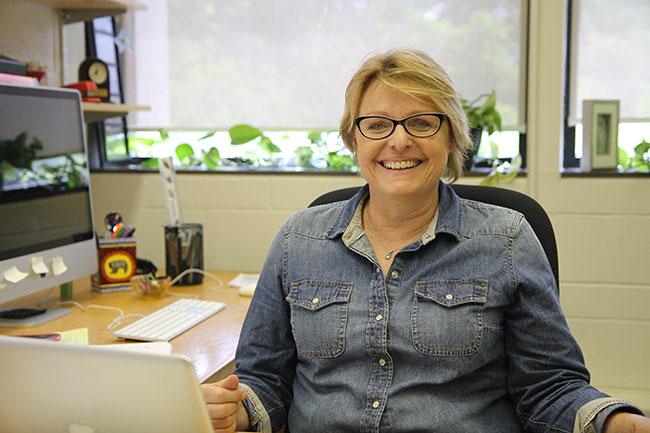
Features
AG Women
Q & A
Evidence-based animal care
Tina Widowski has dedicated her career to improving farm animal welfare.
October 10, 2021 By Brett Ruffell
 Tina M. Widowski
Tina M. Widowski Tina M. Widowski has spent more than 25 years investigating the factors that affect the well-being of poultry and livestock. Collaborating with academic leaders, her extensive research and authorship has included findings on growth, efficiency and mortality in broiler chickens, as well as alternative housing systems for laying hens. Canadian Poultry magazine editor Brett Ruffell chats with Widowski about her career, her inspirations and her thoughts on the evolving role of women in agriculture.
Can you tell us a little bit about your career, your current role and how you got there?
Yes, I am currently a professor in applied animal behaviour and animal welfare in the Department of Animal Biosciences at the University of Guelph. I have recently stepped down from a 12-year term as the director for the Campbell Center for the Study of Animal Welfare. And I currently now hold the Egg Farmers of Canada Research Chair in Poultry Welfare.
And it has been quite a journey to get here. Growing up in Chicago, I knew nothing of animal agriculture. I was, however, very interested in animals. I went to the zoo. Had pets. And I was destined for a career either as a zookeeper or, like many other students that I teach, a veterinarian.
And so, I applied for vet school when I was at university. I’d had many years of experience in a small animal clinic. And I was interviewed but did not get accepted the first time and they told me that I should try and get some livestock experience to improve my experience with animals in general.
So, I had taken one or two animal science courses in the agriculture program at the University of Illinois. And I went to one of my professors and asked him to hire me to be a summer student to gain experience in his lab, which was mostly pigs. He hired me and I never left that lab and never looked back. And that’s what’s really launched a research career with agricultural animals.
What is your proudest achievement or a defining moment of your career?
It’s a bunch of moments. I think it’s my students. Training graduate students. Watching them grow. Seeing the light bulb go on when they figure out what they’re actually doing for their thesis. And then seeing them go on to careers afterward. I’m really, really proud of my students. They’re your legacy that goes on and they’re the ones that can get out there and change the world as well after you’re done.
Could you talk about a particular challenge you faced in your career and how you persevered?
Probably the first challenge would be developing confidence to enter a world where I didn’t have a background. And so, part of overcoming that is interacting with people in the industry.
Another challenge, I think, is just the whole balancing of career and family. You just need to realize and come to terms with the fact that the decisions that you make, as a partnership or as a family, may not be the same decisions that you make if you were just on your own in terms of jobs you would take or things that you would do. But that’s okay.
Looking forward, what are the main goals you want to achieve in the next few years?
I want to continue to work with egg farmers. They’re currently transitioning from conventional cages to alternative housing systems (cage-free or “enriched” cages). So, with the code of practice and with their voluntary decision, they’re committed to a huge change for the next 20 years.
And so housing systems will be evolving over time, or new adopters and young farmers will be taking over and changing those systems. So, I want to do research that helps fine tune that. There’re challenges with those systems for the welfare of the animals as well.
So, I want to find solutions to some of those challenges that help the farmers and birds adapt.